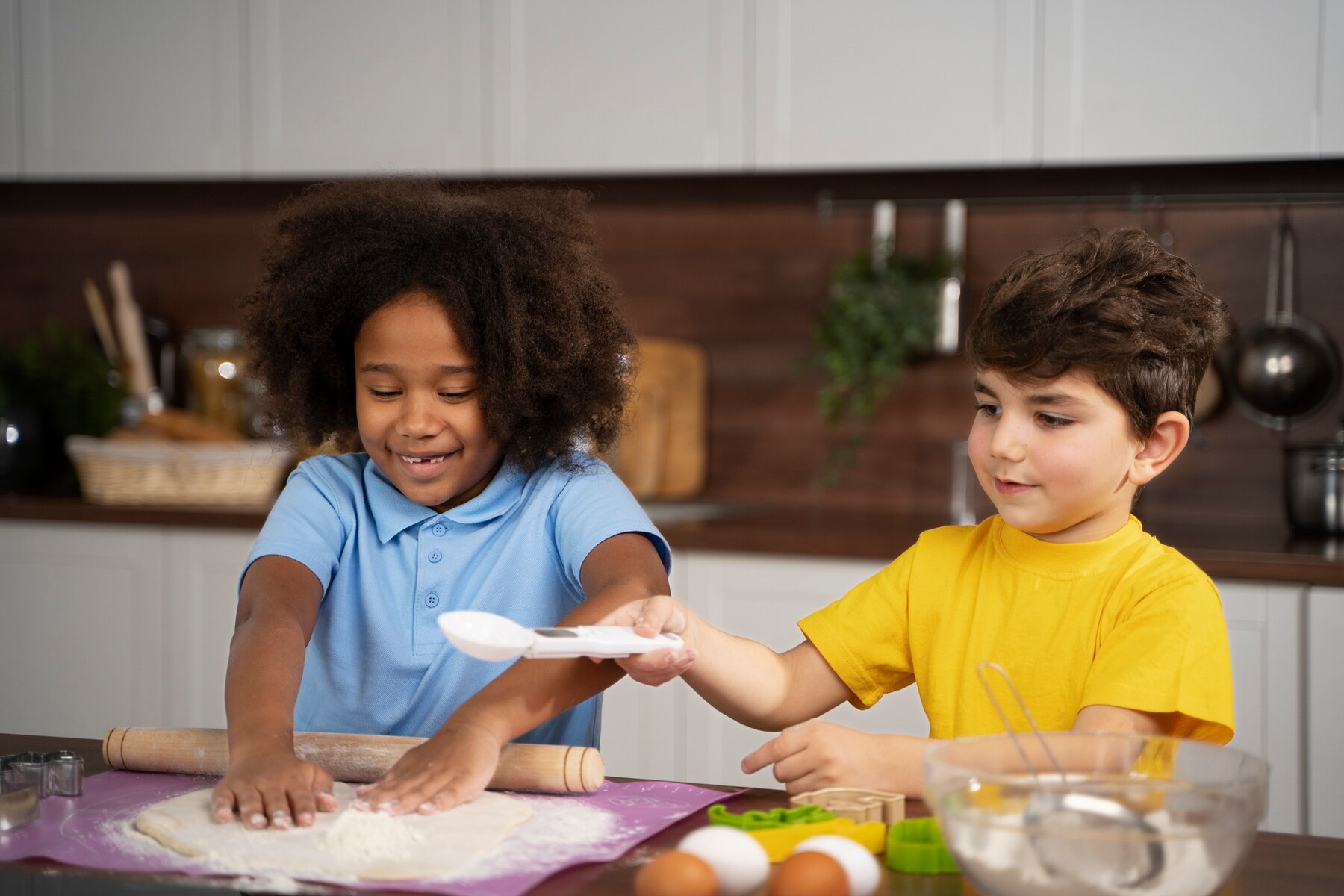🎈 Better Together: Why Little Friends Make a Big Difference in Early Childhood
🎈 Better Together: Why Little Friends Make a Big Difference in Early Childhood
From giggles on the #playground to snack-time negotiations, peer relationships are at the heart of childhood. These #early friendships aren’t just cute—they’re crucial! When young children interact with peers, they're doing much more than playing—they're building the foundation for emotional, social, and cognitive #development.
Let’s explore why peers matter so much in #early-childhood—and how #educators and caregivers can #nurture these important relationships.
🤝 Social Skills Start with Peers
Peer interactions teach children how to cooperate, share, and empathize. Through play and everyday conversations, children learn to:
-
Take turns and negotiate
-
Manage emotions like frustration or excitement
-
Understand different perspectives
-
Resolve conflicts with words instead of tears
These aren’t just life lessons—they’re vital develop #mental milestones.
🧠 Want to guide children through those tricky friendship moments? Check out our course:
👉 You're Not My Friend Anymore: Learning Conflict Resolution
🌱 Emotional Growth Through Connection
Early peer relationships help children identify their own emotions and recognize those in others. From celebrating a friend's success to navigating hurt feelings, these experiences:
-
Boost self-esteem
-
Reduce anxiety
-
Encourage compassion
A strong emotional foundation #leads to better school readiness and long-term #mental- #health.
🌟 Peers as Role Models
Children are natural imitators—and their peers are often the most influential models around. When one child tries something new (like solving a puzzle or cleaning up), others follow. This ripple effect helps spread positive behaviors in #early-learning environments.
Want to explore how to shape peer influence in a #healthy way? Dive into:
👉 The Right Kind of Influence for Young Children
🏫 Creating a Peer-Friendly Learning Environment
At ChildCareEd.com, we believe educators play a key role in creating spaces where peer relationships thrive. Here are a few simple strategies:
-
Offer plenty of group play opportunities
-
Model respectful communication
-
Celebrate teamwork and kindness
-
Guide children through disagreements calmly
With the right environment, even the smallest friendships can leave a big impact.
💬 Final Thought: Friends Make Learning Fun
Peer relationships in early childhood are powerful tools for learning and #growth. Whether it’s resolving conflicts, sharing new ideas, or learning by example, little learners grow best side by side.
Ready to support strong peer dynamics in your #classroom or center?
Visit ChildCareEd.com for training that turns playtime into powerful learning time.
- Play Safe, Think Big: Literacy Through Play
- CDA Bridge Bundle: Family Child Care without Portfolio Review
- CDA Bridge Bundle: Infant/Toddler without Portfolio Review
- Injury Prevention: Their Safety Is In Your Hands
- Families, Communities, and Classrooms: Working Together for Children
- CDA Bridge Bundle: Preschool without Portfolio Review
- Lesson Planning for Preschoolers
- Supporting Little Hearts: Divorce and Separation in the Child Care Setting
- Learn CPR and Be the Hero in a Crisis!!
- 🎈 Better Together: Why Little Friends Make a Big Difference in Early Childhood
- What Signs Indicate That a Child Might Need Additional Developmental Support?
- Family Engagement Strategies in Early Childhood Education
- 🚩👶 What Are the Red Flags in Infant Development Every Educator Should Know?
- How to Support Children with Special Needs in Child Care
- What Is the Difference Between Coaching and Supervising in Child Care?
- The Importance of Social-Emotional Development in Early Childhood Classrooms
- Typical vs. Atypical Child Development: What Every Child Care Provider Should Know
- Nutrition Guidelines for Infants and Young Children in Child Care
- Understanding Child Development Milestones: A Complete Guide for Child Care Providers
- Typical vs. Atypical Child Development: What Every Child Care Provider Should Know
- Supporting Whole-Child Development in Early Learning Settings
- Affordable Child Care Training Options for Providers
- Language Development Milestones in Early Childhood
- How can we support all children in all areas of development?
